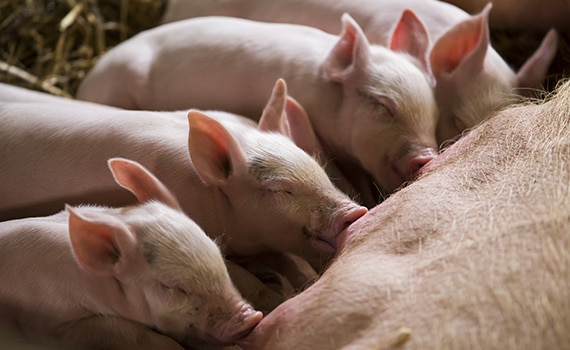Source: Marcello Marchesi, Pig Progress, 11 November 2020, photo credit: Pig Health Today
Sows are exceptionally well equipped for their task: to provide colostrum and milk to their offspring. However, genetic progress in terms of sow prolificacy is changing the requirements of that valuable talent.
At farrowing, sows produce colostrum for about 24 hours. This helps piglets on their way, as they are born without any antibodies to protect them. Colostrum is an extremely rich source of antibodies (immunoglobulins), essential for the piglet’s defence against infections.
At birth, the piglet leaves the uterus at a temperature of approximately 38.5°C and enters into a farrowing room where the temperature is often in the range of 20–24°C (even though the creep area may be 30°C). The newborn piglet will quickly suffer from cold chills and will go into a negative energy balance. Apart from antibodies, the colostrum provides warmth and energy.
Read more
The South African Pork Producers’ Organisation (SAPPO) coordinates industry interventions and collaboratively manages risks in the value chain to enable the sustainability and profitability of pork producers in South Africa.
















